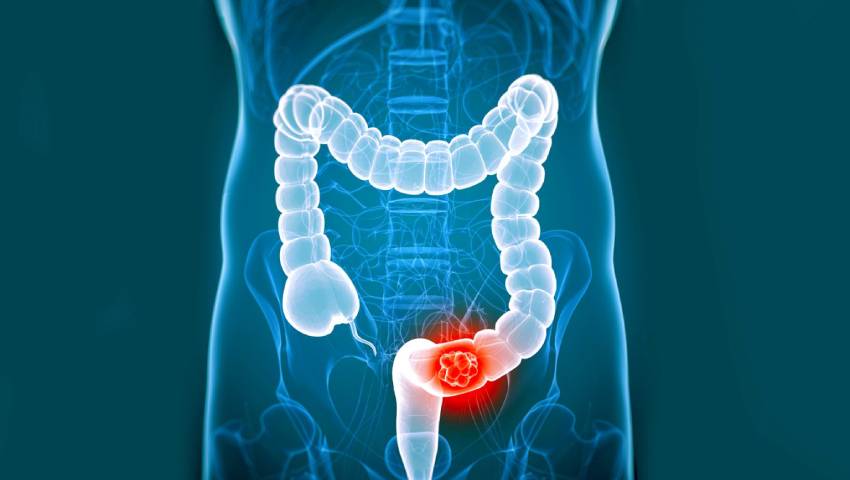Colorectal cancer is one of the most common cancers worldwide, but early detection can significantly increase the chances of successful treatment and survival. In this blog, we’ll explore why early detection is so crucial and how it can make a difference in the fight against colorectal cancer. It further will highlight its detection methods and hurdles in their diagnosis, alongside methods to sensitize people so they can raise early alarms against such diseases. Regarding expert management and treatment of such a tumour, Dr. Srivatsan Gurumurthy says one should attend frequent screenings along with early interference:
Understanding Colorectal Cancer:
Colorectal cancer begins in the colon or rectum and often starts as non-cancerous growths called polyps. Over time, these polyps can turn into cancer. It is also worth noting that colorectal cancer often does not present symptoms in its early stages, making it harder to detect without proper screenings. When symptoms do appear, the cancer may already be in an advanced stage. This is why early detection plays a pivotal role in reducing mortality rates.
Early Detection Matters:
The real treatment of colorectal cancer, according to medical science, occurs before the spreading to other body parts. A cancerous stage in the intestine can be considered early-stage and easily treatable with a significantly high chance of recovery. Patients who are getting themselves screened at regular intervals stand a much greater chance of getting diagnosed with this disease when its treatment options are the most effective, says Dr Srivatsan Gurumurthy, a colorectal surgeon based in Chennai.
Early detection helps in:
- Cancer detection at an early, treatable stage: When detected early, surgical intervention, chemotherapy, or radiation can be more effective.
- Preventing the occurrence of cancer: Through regular screenings, precancerous polyps can be removed before they turn malignant.
- Reduction in mortality rate: Well in time, intervention could prevent various deaths due to the cancer from progressing to the more advanced stages.
Methods of Early Detection:
Detection of early-stage colorectal cancer. There are various methods through which early-stage colorectal cancer can be detected. Some of the most common and successful include:
- Colonoscopy: The procedure in which a long flexible tube with a camera is passed inside the colon in search of abnormal growth.
- Fecal Occult Blood Test (FOBT): This is a type of test that shows the presence of hidden blood in stool, which becomes an indicator of colorectal cancer.
- Flexible Sigmoidoscopy: It is almost like a colonoscopy but this time it only examines the lower part of the colon.
- CT Colonography: It is a non-invasive scan in which X-rays are used to create images of the colon.
Dr. Srivatsan Gurumurthy, a colorectal surgeon from Chennai, leads SS Clinic, offering advanced treatments for colorectal health. According to him, individuals above 50 years of age or those with a family history of colorectal cancer should undergo regular screenings.
Removal of Obstacles for Early Detection:
Despite the effectiveness of early detection methods, several barriers prevent people from getting tested. These include:
- Insufficient awareness: Numerous people are unaware of the significance of early screenings and might not comprehend the dangers linked to colorectal cancer.
- Fear and shame: The thought of having invasive procedures such as a colonoscopy may prevent certain individuals from pursuing early diagnosis.
In some regions, there is insufficient access to healthcare services or even screenings, particularly for the economically disadvantaged groups in society.
Strategies to Increase Early Detection:
According to Dr Srivatsan Gurumurthy, early detection and treatment can greatly prevent colorectal cancer. He also states, “The message must break through the barriers — the public must be informed about the significance of early detection.
- Education and awareness campaigns: Public education should be enhanced about colorectal cancer and the necessity of regular screening.
- Affordable screening: Accessibility of colorectal cancer screening for everyone, irrespective of their income level.
- Encouraging check-ups: Promotion of routine visits to healthcare providers who can offer screening recommendations.
Dr Srivatsan Gurumurthy, one of the best colorectal surgeons in Chennai works at GEM Hospital, believes that the national programs would make screening accessible and make people take preventive health seriously.
Prospects for Colorectal Cancer Identification:
As medical technology progresses, the outlook for detecting colorectal cancer appears promising. Scientists are developing less invasive screening techniques, like blood tests, that could simplify early detection further. Artificial intelligence is increasingly incorporated into diagnostic tools to assist doctors in identifying abnormalities with greater precision.
With advancing medical science, it is expected that the detection of colorectal cancer will be more accurate, efficient, and accessible to more people. This will lead to earlier diagnosis and better treatment outcomes for patients.
Conclusion:
The most effective treatment and highest survival rates for colorectal cancer patients rely on prompt detection. Through adequate screenings, community education, and technological advancements, we can enhance the results for individuals at risk. Dr Srivatsan Gurumurthy, a trustworthy colorectal surgeon in Chennai, states that commencing screening early is optimal, and obtaining professional guidance at the appropriate moment is crucial.
If you or someone you care about is due for a colorectal cancer screening, do not delay. Act today for your health and wellness. Schedule your appointment with Dr. Srivatsan Gurumurthy, Colorectal Surgeon in Chennai, today!

Comments on “The Importance of Early Detection in Colorectal Cancer”